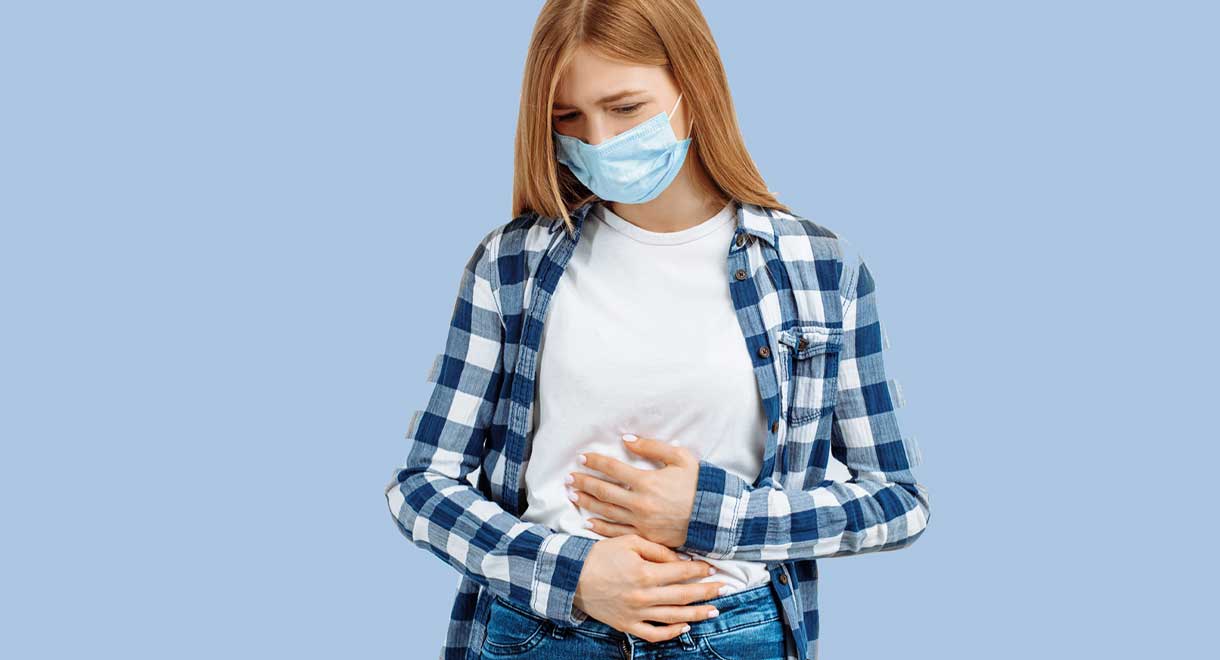COVID-19 And Your Gut Health
When the COVID-19 pandemic first hit the world, it was thought to exert its main damage on the respiratory tract but new studies at The Centre for Gut Microbiota Research at the Chinese University of Hong Kong have shown that it can adversely affect the gut in many ways. COVID-19 can cause abdominal pain, diarrhea and blood clots in blood vessels supplying the intestines. The fact that many people with COVID-19 shed the viral genetic material (RNA) in their feces tells us the virus is in the gut.
The researchers found that people with COVID-19 who had bad gut bacteria (dysbiosis) did not recover as well from this infection. We know that the SARS-Cov-2 virus that causes the disease of COVID-19 enters the body cells, including gut cells, via receptors on the cell membranes called ACE2. Interestingly the ACE2 receptors regulate the type of bacteria in the gut (microbiome) and if these receptors are damaged by the virus, problems with the gut microbiome are likely. This is not good for the immune system as the gut microbiome is hugely influential in the health of the immune system. The researchers in Hong Kong found that all COVID-19 patients had increased levels of bad bacterial species and reduced levels of beneficial bacteria in their faeces and this was worse if the patients had received antibiotic drugs. The researchers also found that COVID 19 patients with low levels of good bacterial species had higher levels of inflammatory chemicals (such as cytokines) in their bodies. They found that patients with long COVID and persistent symptoms continued to have long lasting abnormal gut bacteria especially a lack of bacterial diversity.
It is known that people with diabetes and obesity often have a disturbed gut microbiome and also a higher risk of more severe COVID–19 disease. People who have taken a lot of antibiotic drugs often have a disturbed and unhealthy gut microbiome for months after taking such drugs. Powerful antacid drugs and steroids can also damage the gut bacteria. We need to avoid the over prescribing of antibiotic drugs which do not help to fight a viral infection. One treatment for severe gut dysbiosis is transplant of fecal bacteria from a healthy donor but this is too difficult to become widely used as mainstream therapy.
During the COVID-19 pandemic people’s hygiene habits have changed with social distancing, mask wearing, use of hand washing and disinfectants, and also many have changed dietary habits eating more highly processed and high carb comfort food. Some people have put on unwanted weight. People have also been more stressed which is not good for the gut microbiome. While these increased hygienic habits have reduced the spread of COVID they may not be good for the healthy diversity of our gut bacteria.
Things that can improve your gut microbiome
- Eating more fresh vegetables and fruits. Making your own raw juices gives your body a powerful dose of nutrients and antioxidants.
- Avoiding highly processed foods.
- Avoiding sugar and other high carbohydrate foods.
- Using digestive enzymes with meals if you experience bloating, gas or indigestion.
- Ensuring adequate production of stomach hydrochloric acid with a supplement of Betaine HCL to be taken in the middle of meals.
- Avoiding excess alcohol consumption.
- Drinking plenty of water to avoid constipation.
- Using a good probiotic supplement.
- Supporting your liver health with a liver tonic. When there is an overgrowth of harmful bugs in the gut, the lining of the intestines becomes leaky. Gut wastes then leak into the blood and travel to the liver. This overwhelms the liver with toxins and can produce severe fatigue.
If you have small intestinal bacterial overgrowth (SIBO), using natural antibiotics which are found in some herbs and foods can reduce unhealthy bacterial populations in the gut – see the free e-book titled “Ultimate Gut Health – How to fix your gut problems”.
At the Camden Holistic Health Clinic we have a vaccine clinic and can talk to you about strategies to keep your immune system healthy. We are anticipating that we will have supplies of Novavax soon.
The above statements have not been evaluated by the FDA and are not intended to diagnose, treat or cure any disease.


Leave A Comment